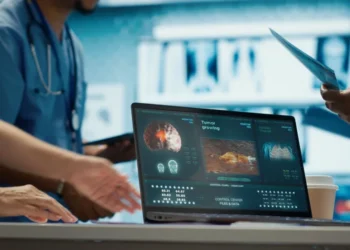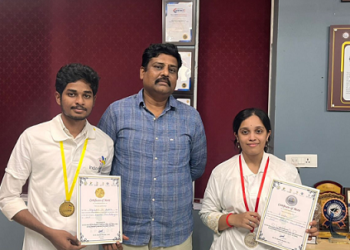New Delhi – South Korean company TagHive has come out with an innovative solution to inform the parents about their child’s activities on a realtime basis.
TagHive is a technology company which designs innovative digital solutions for kids by merging real and virtual worlds for interactive learning experiences.
The company designed an integrated solution – Class-Saathi – which provides a clicker device to each student with interactive learning tools and teaching contents for the teachers in a mobile app.
Class- Saathi is designed for futuristic class-rooms, TagHive’s Co-founder and Chief Executive Officer (CEO) Pankaj Agarwal said. It gives the parents access to the progress of the child on a realtime basis by automatically sending students’ performance updates, he said.
The solution is also helping teachers to analyse behavior and needs of the students, Agarwal said improving the learning outcomes of the students.
The device has integrated tools which give an automatic phone call to the parents, if a student misses a class for three consecutive days, Agarwal said. The device has been able to address the problems of student dropout by 10% he added.
Along with it, is a recorded call from the district magistrate (DM), requesting the parents to send their children back to the school. An appeal from the DM has been very helpful in sensitising the parents, he added.
The company first launched Class Saathi in South Korea and is now planning for a commercial launch of the product in India, in September, Agarwal said. The company did a a pilot of its low cost technology solution with 20 government schools in Varanasi. The pilot was done on more than 1,000 students for one month and the results were “encouraging” for the company, the CEO said.
Corporate sector in India is also investing heavily in education sector as part of the corporate social responsibility (CSR).
HCL Foundation, for instance, is running an education programme – ‘Happy School’ under the umbrella of its ‘Samuday’ initiative, where the foundation is working in rural areas of Uttar Pradesh for social and economic development of the people. The foundation has partnered with the center and state government to work in the areas like education, agriculture, infrastructure and health & hygiene.
The Happy School is employing ICT-aided learning techniques loaded with video-based learning tools, Navpreet Kaur, project director of Samuday initiative told this new service. This has enhanced the learning experience and bridged the gap between students with diverse socioeconomic backgrounds, she added.
Digital solutions are helping to monitor the progress of students and recognise their learning requirements, Kaur said.
HCL foundation spends approximately 15% of the total Samuday spending on improving the education infrastructure in the schools it is working, she added. It is using TagHive’s learning solution in its education programmes, Kaur pointed out.
The foundation is also encouraging the use of interactive boards as learning aid and providing inputs for writing and visual skills.
“It (digital solutions) not only helps us impact a greater number of schools but also ensures that the community is invested in the progress of the school and the learning requirements of the children. It adds a dimension of sustainability to the program,” she added.






















